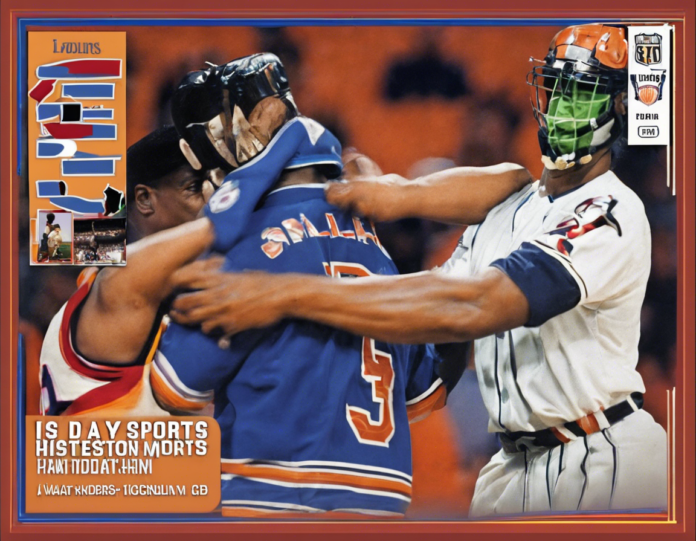Sports history is a rich tapestry that reflects the evolution of human civilization and culture. From ancient times to the modern era, sports have played a significant role in shaping societies, fostering competition, and uniting people from diverse backgrounds. This article will take a comprehensive look back in time at the history of sports, tracing its origins, key milestones, and enduring impact on the world.
Origins of Sports
Sports have deep roots in human history, with evidence of athletic competitions dating back thousands of years. The ancient Greeks are credited with popularizing the concept of organized sports, as seen in the Olympic Games held in Olympia from 776 BC. These early games featured a variety of events, including running, wrestling, and chariot races, and attracted competitors from across the Greek city-states.
In ancient Rome, sports became an integral part of society, with events such as gladiatorial contests, chariot racing, and athletics gaining popularity. These spectacles not only entertained the masses but also served as a means of social control and political propaganda.
Medieval and Renaissance Sports
During the Middle Ages, sports took on a different form, with activities like jousting, archery, and medieval football (predecessor to modern soccer) becoming prominent. Knights and nobles showcased their skills in tournaments, while common folk engaged in village games and contests.
The Renaissance period witnessed a revival of interest in classical sports and physical fitness, with gymnastics, fencing, and horseback riding gaining prominence among the European elite. Humanist scholars like Leonardo da Vinci emphasized the importance of a healthy mind and body, leading to a greater focus on sports and physical education.
The Rise of Modern Sports
The 19th and 20th centuries marked a turning point in the history of sports, as industrialization, urbanization, and globalization transformed athletic competitions into major spectacles with mass appeal. The emergence of modern sports such as football, basketball, baseball, and tennis paved the way for professional leagues, international tournaments, and the commercialization of athletics.
The inaugural modern Olympic Games held in Athens in 1896 symbolized the revival of the ancient tradition of athletic excellence and international competition. Over the years, the Olympics have grown into the most prestigious sporting event in the world, showcasing a wide range of sports and athletes from diverse cultural backgrounds.
Impact of Sports on Society
Sports have transcended mere entertainment to become a powerful force for social change, promoting values like teamwork, discipline, and fair play. Athletes have emerged as role models and ambassadors for causes ranging from civil rights and gender equality to environmental conservation and global peace.
Sports have also become a multibillion-dollar industry, driving economic growth, tourism, and infrastructure development in host cities and countries. Major sporting events like the FIFA World Cup, the Super Bowl, and the Olympics attract millions of spectators and generate revenue through ticket sales, broadcasting rights, sponsorships, and merchandise.
The Future of Sports
As we look ahead to the future, sports continue to evolve in response to technological advancements, demographic shifts, and changing consumer preferences. Virtual reality, e-sports, and wearable technology are revolutionizing the way we experience and participate in athletic activities, blurring the lines between physical and digital realms.
Globalization and social media have connected fans and athletes from around the world, creating new opportunities for collaboration, innovation, and inclusivity in sports. Issues like doping, corruption, and athlete welfare pose challenges to the integrity and ethics of sports, necessitating ongoing reforms and regulations to uphold the spirit of fair play and competition.
In conclusion, the history of sports is a testament to the enduring appeal and significance of athletic pursuits in human society. From ancient rituals and medieval contests to modern leagues and mega-events, sports have captivated our imagination, instilled values of excellence and sportsmanship, and brought people together in a spirit of camaraderie and competition. As we continue to embrace the transformative power of sports, let us celebrate the past, embrace the present, and innovate for the future of athletic endeavors worldwide.
Frequently Asked Questions (FAQs)
1. What are the oldest sports in history?
Some of the oldest sports in history include wrestling, running, archery, chariot racing, and discus throwing, which were practiced in ancient civilizations like Greece, Rome, Egypt, and China.
2. When were the first modern Olympic Games held?
The first modern Olympic Games were held in Athens, Greece, in 1896, marking the revival of the ancient tradition of athletic competitions and international camaraderie.
3. How has technology impacted sports in recent years?
Technology has revolutionized sports through innovations like video replay, performance tracking devices, virtual reality training, and data analytics, enhancing athlete performance and fan engagement.
4. What role do sports play in promoting social change?
Sports have been instrumental in promoting social change by raising awareness of issues like diversity, inclusion, gender equality, and environmental sustainability, empowering athletes to become advocates for positive causes.
5. What are some of the biggest challenges facing the sports industry today?
Challenges facing the sports industry include doping scandals, match-fixing, athlete welfare concerns, financial sustainability, fan misconduct, and adapting to digital disruptions in media and entertainment.
6. How do sports contribute to the economy?
Sports contribute to the economy by creating jobs, generating revenue through ticket sales and sponsorships, boosting tourism and hospitality sectors, and catalyzing infrastructure development in host cities and regions.





